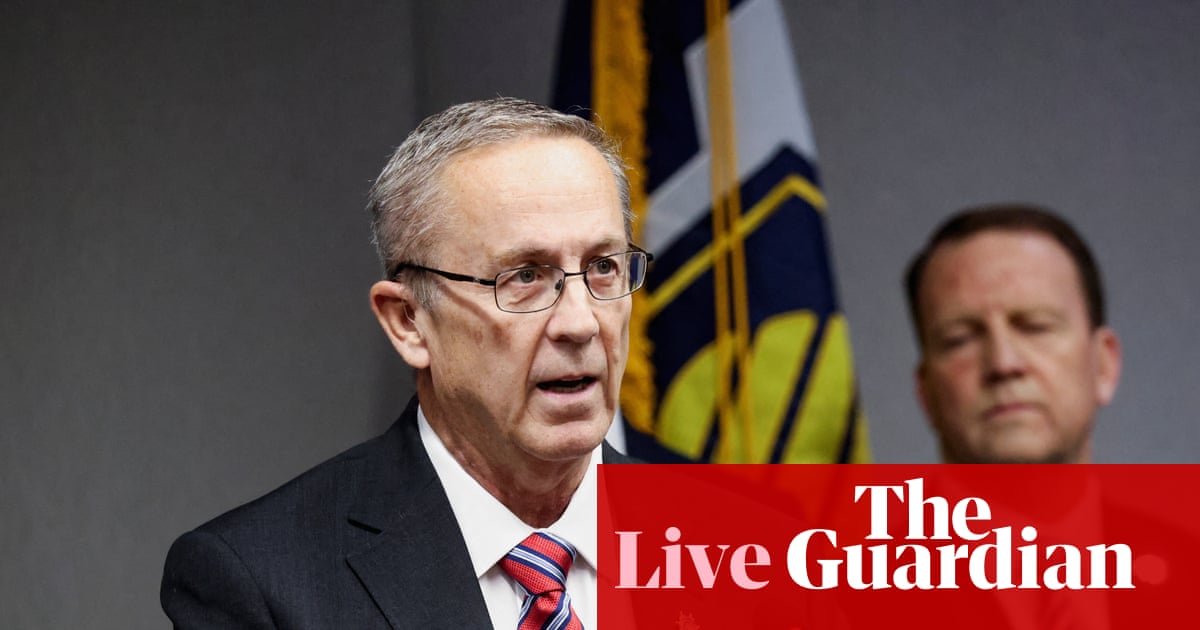The movie mogul Harvey Weinstein has been found guilty on one charge of committing a criminal sexual act in the first degree by a Manhattan jury, concluding a three-week trial that revived accusations from a successful 2020 prosecution that was overturned on appeal.
Weinstein was found guilty of sexually assaulting Miriam Haley, but was acquitted of a second charge of sexually assaulting Kaja Sokola.
The jury did not reach a unanimous verdict on a charge involving Jessica Mann, who alleges that Weinstein raped her. The judge has advised them to continue deliberations.
The verdict delivered against Weinstein follows two earlier convictions on similar charges, one of which was overturned on appeal. In the first, now-vacated New York case, Weinstein was sentenced to 23 years in prison. A second conviction, in California, resulted in a 16-year sentence.
Prior to the return of the jury, Weinstein addressed the court and urged the judge to declare a mistrial after several jurors reported tensions in the deliberation room.
“This is my life that’s on the line,” Weinstein told Judge Curtis Farber, adding: “I am not getting a fair trial.”
Weinstein told the judge: “You are endangering me, Your Honor.”
The partial verdict came after almost a week of jury deliberations, at times appearing to be steering the case against Weinstein toward a mistrial.
On Wednesday, the jury foreperson requested to speak to the judge about “a situation” he found troubling.“He said words to the effect of ‘I can’t go back in there with the other jurors,’” Farber explained later. The foreperson was sent to wait in a separate room, where he penned a note saying: “I need to talk to you about a situation.”
“He did indicate that at least one other juror made comments to the effect of ‘I’ll meet you outside one day,’ and there’s yelling and screaming,” Farber said.
Weinstein lawyer Arthur Aidala characterized the foreperson’s concerns more severely, saying that the man had said he was concerned for his safety after his fellow panelist talked about meeting him outside and added: “You don’t know me.”
Prosecutor Matthew Colangelo, however, said the foreperson hadn’t seemed afraid or apprehensive, just “stubborn”.
That followed previous messages from the jury room alerting the court to jury discord. On Monday, the foreperson complained that some jurors were pushing others to change their minds. Last week, another juror had said some jurors were being “shunned” by others.
The case was seen as a test of the legacy of the #MeToo movement that faded from the spotlight as other, comporting social justice and political movements – including racial justice – took center stage.
Weinstein did not testify in his defense at trial, which he has attended in a wheelchair from custody in a Manhattan hospital where he was being treated for leukemia. As in the previous trials, he denied the allegations, saying he believed the interactions with his accusers were consensual.
In the now-concluded case, Weinstein was accused of raping Mann, an actor and hairstylist, in 2013; as well as forcing oral sex on Haley, a production assistant and producer, and Sokola, an aspiring actress, both in 2006.
All three women testified during the retrial, giving emotional and graphic accounts of their ordeals. Prosecutors contended that Weinstein had used his power in the industry to lure the women with promises of career advancement but had later turned on them sexually, with force, against their consent.
Weinstein’s attorneys argued in court that any physical interaction between their client and his accusers was consensual – and offered evidence that the three women had continued friendly relationships with Weinstein after the charged offences occurred.
Weinstein’s lawyer, Arthur Aidala, said the Oscar-winning producer and his accusers had a “mutually beneficial” relationship – and they ended up with auditions as well as other show business opportunities.
The defense offered testimony from friends of Sokola and Mann who indicated that neither had offered contemporaneous accounts of being assaulted by the defendant and had not said anything was amiss.
Mann testified that she never told anyone at the time that Weinstein had sexually assaulted her because she didn’t think she’d be believed, and she was scared about how he might react.

.png) 3 months ago
47
3 months ago
47

















































